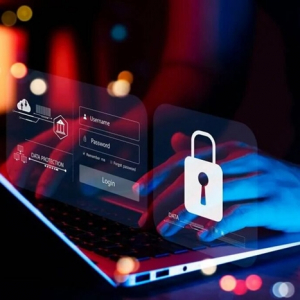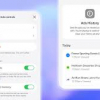CONTACT US
info@bidaiondo.com

NIS2 and identity protection, main challenges in cybersecurity

Cybersecurity is once again on the minds – and in the strategic planning for next year – of the vast majority of technology directors of companies of all sizes with NIS2 and identity protection as the most pressing challenges . The digital world is expanding its horizons more and more, from IoT to Artificial Intelligence, making cybersecurity a key piece in any gear. And while we embrace this year's developments, 2024 promises new trends and patterns related to cyber threats that will take the industry in new directions.
New cybersecurity legislation
The first of these will be the impact that the NIS2 directive may have on companies operating in the EU. This is, without a doubt, a very important step taken by public institutions to promote common cybersecurity throughout the Union. However, the legislation promises twelve months of confusion for companies classified as basic critical infrastructure that must comply with the new regulation. This rule is expected to come into force on October 17, so it will be interesting to see how each country transposes the directive into their respective national laws.
Many companies will also expect a magic button that allows them to comply with the law without much effort, but NIS2 is not just technology, it is also practical and operational. The impact of this standard will be correlated with the maturity of each organization's security strategies, since implementation will require significant efforts, especially if high levels of protection have not been taken into account until now. For those that have advanced and innovative cybersecurity policies, the impact will be practically nil. In any case, 2024 will be a period of adaptation in the cybersecurity practices of EU companies.
Share information about incidents
The cultural change towards shared and collaborative intelligence will also become the cornerstone for many companies next year. Right now, we find a real gap between the extent and effectiveness when it comes to sharing information after a cyberattack, due, especially, to the rejection of victims due to possible stigmatization or feeling of guilt. This situation has a negative impact on the global understanding of new threats, but also prevents the development of truly robust mechanisms for the defense of organizations.
NIS2 is not just technology, it is also practical and operational
Recognizing this problem, local governments and regulatory bodies are expected to play a critical role in the new way of thinking about intelligence sharing in 2024. By enforcing policies that encourage or require the sharing of information about cybersecurity incidents and threat intelligence, the goal is to foster a more collaborative environment and an environment that focuses less on victim blaming. This change is not just about compliance; It is about cultivating a mindset in which organizations view intelligence sharing as a common responsibility and vital to collective cyber resilience.
As we move towards a culture that prioritizes protection, training and prevention over blaming, we can expect a more united front against cyber threats that benefits both organizations and individuals. Emphasis should be placed on learning from incidents, raising awareness of emerging threats, and collectively designing strategies to prevent similar attacks, thereby creating a safer and more informed digital ecosystem.
Continued increase in attacks related to social engineering
Identity-based attacks will continue to be the main weapon of cybercriminals in 2024 for the simple fact that it has been proven to be the most efficient attack. According to a CrowdStrike study, 80% of breaches occur from compromised identities. Criminals are not only looking for valid credentials but, above all, they are pursuing any form of authorization and identification - weak credentials of victims who have made purchases on the black market, for example - and use them to carry out their social engineering and to carry out phishing attacks.
As we move towards a culture that prioritizes protection, training and prevention over blaming, we can expect a more united front against cyber threats that benefits both organizations and individuals. Emphasis should be placed on learning from incidents, raising awareness of emerging threats, and collectively designing strategies to prevent similar attacks, thereby creating a safer and more informed digital ecosystem.
Continued increase in attacks related to social engineering
Identity-based attacks will continue to be the main weapon of cybercriminals in 2024 for the simple fact that it has been proven to be the most efficient attack. According to a CrowdStrike study, 80% of breaches occur from compromised identities. Criminals are not only looking for valid credentials but, above all, they are pursuing any form of authorization and identification - weak credentials of victims who have made purchases on the black market, for example - and use them to carry out their social engineering and to carry out phishing attacks.
Social engineering is the highlight here, as companies need to make efforts to educate their employees to be aware of when they are being deceived. This makes identity protection the most critical protection that companies should seek to strengthen in 2024. Otherwise, criminals will continually attack this weak point and, in most cases, be successful.
Collaboration between teams
All of these challenges make it more important than ever that the lines between IT and security teams are blurred, as there is a real opportunity to improve corporate resilience with the convergence of these two departments that have traditionally operated independently.
Cooperation between the two areas allows the combination of experts who can fight together against the most sophisticated threats. Furthermore, the emergence of cybersecurity platforms designed specifically for use in IT departments is proof of this. These types of platforms have been designed to integrate security into technical operations and offer real-time analysis and automated responses to any security incident, therefore reducing response time and improving the company's overall security.
In short, it is no surprise to say that companies that prioritize cybersecurity will be better positioned against emerging threats. Investments in advanced security – especially in encryption, multi-factor authentication, real-time threat analysis – but also efforts to achieve a culture of awareness among the organization's professionals will be key to an adequate defense against any attack.
https://revistabyte.es/tendencias-tic/nis2-proteccion-de-la-identida/
Last news
Ecommerce Moment Barcelona 2026 is coming: real-world case studies on innovation, retail media, leadership, and new consumer habits

The European Commission demands urgent measures from Meta to bring external assistants back to WhatsApp

online trading systems.
 We show you the best way to market products and services online, through a professional service of installation, management and maintenance of your virtual store
We show you the best way to market products and services online, through a professional service of installation, management and maintenance of your virtual store
We program to suit you
 We help you achieve operational excellence in all your business processes, whether they are production, logistics, service or office processes. In addition, we assure you to maintain continuous improvement in your management.
We help you achieve operational excellence in all your business processes, whether they are production, logistics, service or office processes. In addition, we assure you to maintain continuous improvement in your management.
Bidaiondo Articles
We take a look at how ChatGPT's new advertising works, which is already live.

ChatGPT has finally launched advertising on its platform. Relatively quietly (considering the importance of this development for the future of its business), Sam Altman's company has already rolled out ads on ChatGPT, although for now they will be limited to the United States. This test launch is intended for adult users logged into the Free and Go plans. For the time being, the Plus, Pro, Business, Enterprise, and Education plans will not se...
The two sides of Moltbook, the social network exclusively for AI agents: entertainment and risks

A new social network has just been launched, and it's nothing like you'd expect. Moltbook is a platform similar to Reddit, but its users are none other than AI agents that debate, share, and vote, while humans are welcomed as mere observers. What is Moltbook? Last week we told you about OpenClaw, a proactive AI agent capable of taking control of your computer to help you perform tasks, which has become the talk of the town. Well, it seems...

ABOUT US
FILES

Welcome to Bidaiondo, dear user
BIDAIONDO SL, as the party responsible for the website www.bidaiondo.com, uses its own operating cookies and those of third parties of an analytical nature to allow the use of the website, analyze our services and show you information related to your preferences based on a profile drawn up from of your browsing habits (for example: pages visited). Please bear in mind that, if you do not activate some types of cookies, such as operational and analytical cookies, your experience of using this website may be affected. You can obtain more information and configure your preferences in the CONFIGURE option that appears below, you can reject cookies in the REJECT AND CLOSE option or accept all cookies and continue browsing in the ACCEPT AND CLOSE option.
So do you want to know more?
Data privacy seems important to you, and it is to us too. We store cookie data for 13 months. If you want to know more, you can visit our pages Privacy Policy y Cookies policy. Do you know what cookies are? Cookies are files that are used by virtually all websites. When browsing our page, they are installed in your browser or device to ensure that the website works correctly and store information about your visit. The data provided by cookies treat the user anonymously and in no case do they store personal information.
The data collected by the cookies we use are:
- Addresses IP
- References of visited pages
- References of downloaded files
- The website itself www.bidaiondo.com
- https://www.moz.com
- https://secure/europeanssl.eu

 Spanish
Spanish













